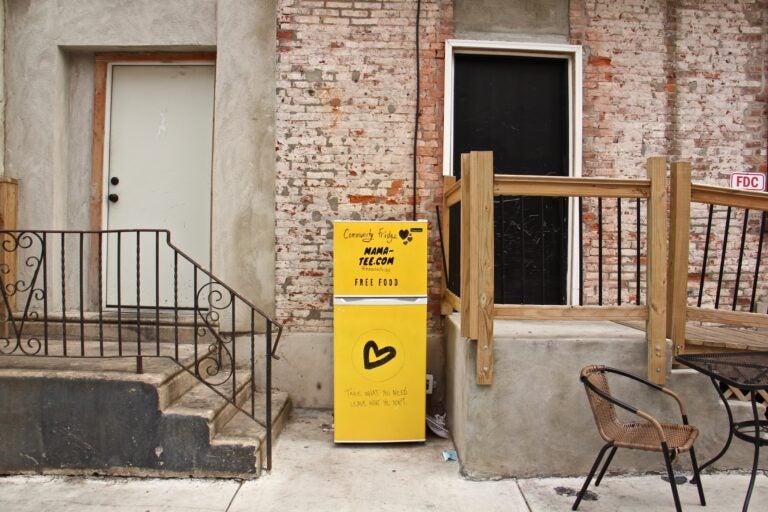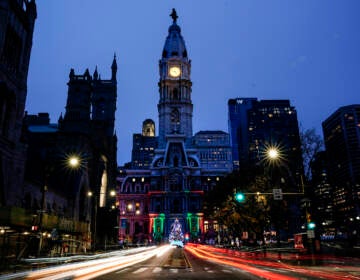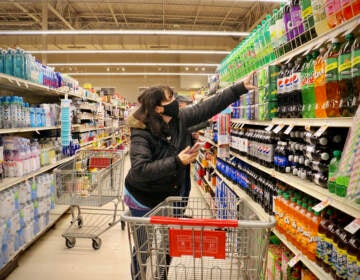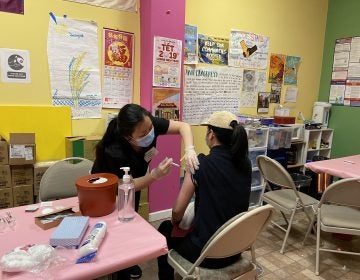Community fridges a fresh form of a long Philly tradition
The community fridges popping up during COVID-19 are an example of something called "mutual aid," which is a tradition in Philadelphia stretching back more than a century.
Listen 14:49
The Mama-Tee community fridge on 7th Street north of Girard. (Emma Lee/WHYY)
Here’s one good thing that’s popped up in Philly during the pandemic: community fridges full of free food to help people who have been struggling to make ends meet. It turns out the fridges are an example of something called “mutual aid,” which is a tradition in Philadelphia stretching back more than a century.
WHYY’s Emily Scott digs into that history and explains how the tradition has shifted in response to different crises over the decades from helping free Black people after the Revolutionary War to COVID-19.

Hear the whole story on The Why
Interview highlights
On how community fridges work
You’d open the door and you’d see fresh kale, heirloom tomatoes, zucchini, apples, cold bottled water — all for free. And it comes from a lot of different places. It could be from people in the neighborhood walking by, who are like, “Oh, I have an excess amount of this type of fruit or vegetable that I probably won’t use before it gets bad, so let me just put this in the fridge.” Some of the fridge organizers had been collaborating with either restaurants that, especially during the pandemic, had a lot more food that would have been thrown out, or they’re working with farm shares that deliver these boxes to different places all across the city and have also have an excess amount during the pandemic.
When mutual aid became popular in the United States
It really picked up in the 18th century. Mutual aid was the most popular form of volunteer work in the U.S. from the 1850s well into the 1900s. This was at a time when we had a large, poor and working-class population. These mutual aid networks were really created because there was a lack of social safety nets for people. Some of them instituted a cradle to grave system. That would mean starting orphanages or hospitals that had full-time doctors. In Philadelphia, one of the first mutual aid societies was the Free African Society, founded in the 1780’s by Richard Allen, who’s the founder of the African Methodist Episcopal Church.
On the difference between mutual aid and charity
The difference between mutual aid and charity is that everyone cares and looks out for each other. The motto of thinking is give what you can and take what you need. And how it works with the refrigerators is it’s a way to make fresh food more accessible for people who need it. The organizers say it helps alleviate food insecurity, which is especially important now during the pandemic when food banks and pantries are overwhelmed.
 WHYY is one of over 20 news organizations producing Broke in Philly, a collaborative reporting project on solutions to poverty and the city’s push towards economic justice. Follow us at @BrokeInPhilly.
WHYY is one of over 20 news organizations producing Broke in Philly, a collaborative reporting project on solutions to poverty and the city’s push towards economic justice. Follow us at @BrokeInPhilly.
WHYY is your source for fact-based, in-depth journalism and information. As a nonprofit organization, we rely on financial support from readers like you. Please give today.






